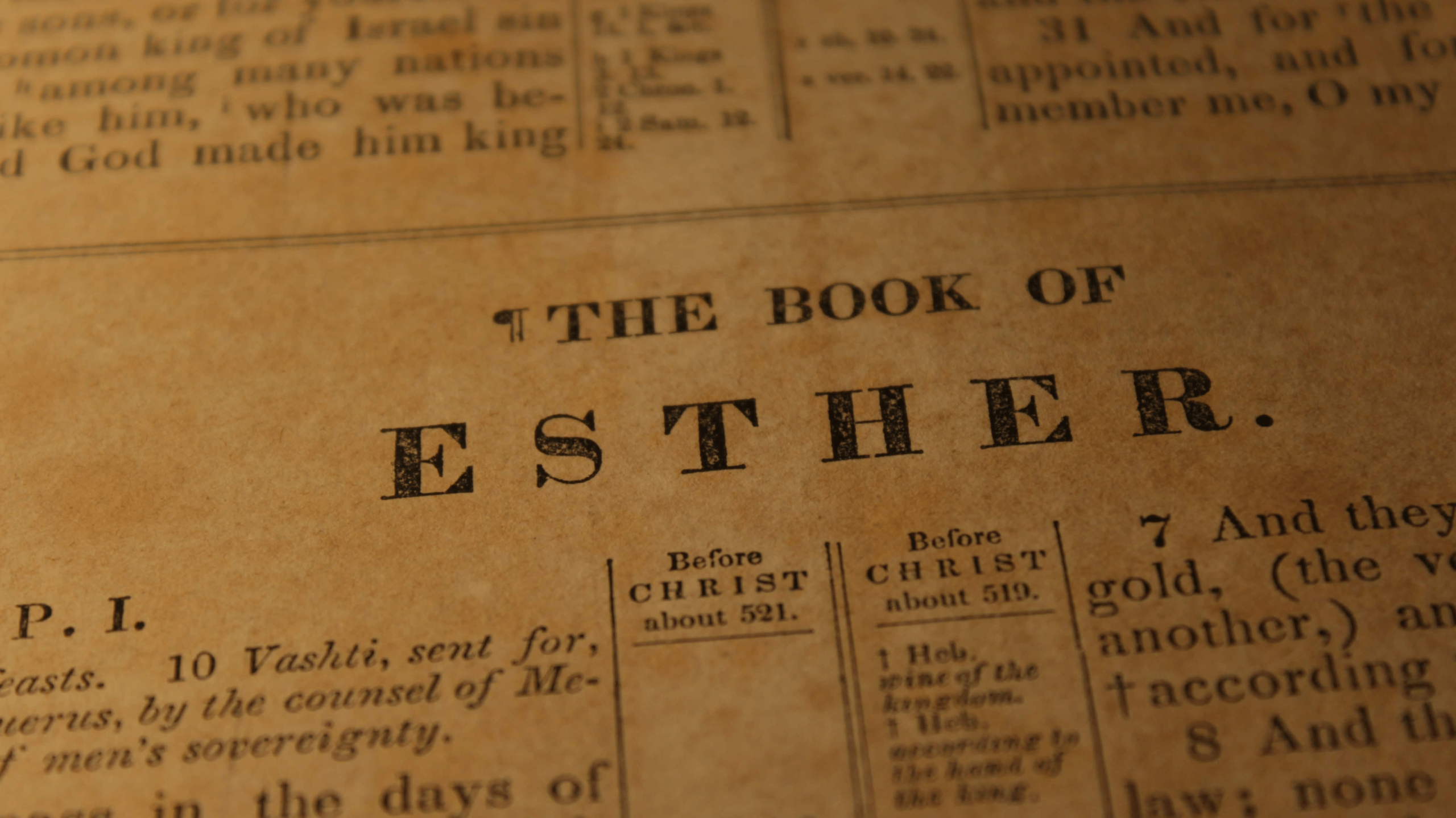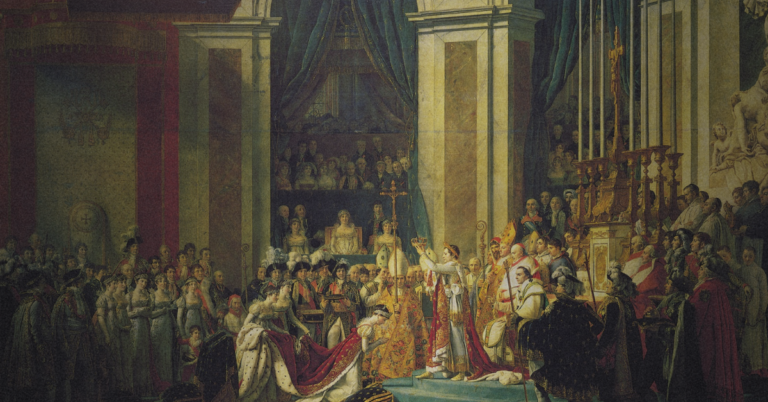In a world where work-life balance feels like an elusive dream, societal expectations weigh heavy, and mental health struggles abound, the story of Esther offers a beacon of hope and inspiration. Set against the backdrop of ancient Persia, Esther’s narrative may seem distant, yet its themes resonate deeply with the challenges faced by modern women today.
As we embark on this journey through Esther’s story, we’ll explore how she navigated similar trials and tribulations with grace, courage, and resilience. From confronting gender inequality in a patriarchal society to managing the pressures of societal expectations, Esther’s example teaches us valuable lessons about standing up for what is right, embracing our identity, and finding strength in adversity.
Join us as we delve into Esther’s narrative, discovering timeless truths and timeless wisdom that speak to the heart of every woman striving to overcome obstacles and claim her place in the world. Through Esther’s story, we’ll find inspiration, encouragement, and empowerment to face our own challenges head-on, knowing that with faith, determination, and perseverance, we too can emerge victorious.
Introduction To Esther Bible Study
If you’re breathing, you likely understand adversity all too well. Perhaps life’s cruelty lies in forcing us to ponder our identity and purpose amidst our harshest adversities. It’s a balancing act that feels all too familiar.
Much like Esther, we often find ourselves thrust into circumstances beyond our control, grappling with unfairness, carrying heavy burdens, and facing personal struggles. Yet, we’re also on a quest for identity and purpose, navigating life’s complexities.
Esther’s narrative showcases this dichotomy. From an orphaned Jewish girl to the queen of Persia, we witness her transformative journey of self-doubt amidst her greatest adversity.
Through Esther’s story, we learn that adversity helps us embrace our identity, recognize our unique gifts, and boldly step into the purpose God has ordained for us. It’s this combination that grants us the strength, resilience, courage, and conviction needed to persevere.
Esther’s boldness in stepping out of her comfort zone to face her fears and take action is a lesson for us all.
Who Is Queen Esther In the Bible?

Esther, a central figure in the biblical book bearing her name, emerges as a heroine whose life embodies courage, faithfulness, and divine providence. Within the narrative, Esther is depicted as an orphaned young Jewish woman living with her cousin Mordecai in the Persian Empire during the reign of King Ahasuerus (Xerxes I). Despite her humble origins, Esther rises to become queen of the Persian Empire through a series of providential events orchestrated by God.
Esther’s significance extends beyond her royal status; she becomes instrumental in thwarting a genocidal plot devised by the King’s advisor, Haman, against the Jewish people. Through her bravery and strategic intervention, Esther risks her life by revealing her Jewish identity to King Ahasuerus and pleading for the survival of her people. Her willingness to confront injustice and advocate for the vulnerable exemplifies her deep faith and sense of responsibility.
Furthermore, Esther’s story exemplifies identity, purpose, and divine sovereignty themes. Despite initially concealing her Jewish heritage, Esther embraces her identity and fulfills her divine calling to serve as a deliverer for her people. Her journey from obscurity to prominence underscores the transformative power of embracing one’s identity and stepping into God’s ordained purpose, even amidst daunting challenges.
In essence, Esther embodies the timeless biblical archetype of the courageous heroine. Her unwavering faith and obedience to God’s leading enable her to navigate treacherous circumstances and fulfill her divine destiny. Her story serves as a testament to God’s providential care and inspires believers to trust in His sovereignty, even in the face of adversity.
Summary On The Book of Esther

The Book of Esther unfolds against the backdrop of ancient Persia, where a Jewish orphan named Esther finds herself thrust into the heart of political intrigue and danger. As the story begins, Esther is living in exile under the care of her cousin Mordecai, unaware of the significant role she will play in shaping the destiny of Jewish people.
Esther’s journey takes a dramatic turn when she is chosen as one of the young women to be presented to King Xerxes for consideration as his new queen. Despite her initial reluctance, Esther’s beauty and grace capture the King’s favor, and she is crowned queen of Persia.
However, Esther’s newfound position of privilege comes with great responsibility when she learns of Haman’s plot to annihilate all the Jews under Persian rule. With courage and wisdom, Esther risks her own life by revealing her Jewish identity to the King and pleading for the lives of her people.
Through a series of providential events orchestrated by God, Esther’s bravery and selflessness led to Haman’s downfall and the Jewish people’s salvation. Her story serves as a powerful testament to God’s sovereignty and the transformative power of faith and obedience, even in the face of seemingly insurmountable odds.
Just as Hannah’s story reminds us of God’s faithfulness and sovereignty in the midst of adversity, Esther’s narrative underscores the timeless truth that God is always at work behind the scenes, orchestrating events for the good of His people.
Why is Queen Esther important?

Esther holds immense significance within the broader biblical & historical context for several compelling reasons.
Firstly, Esther’s story foreshadows Jesus’ coming through its themes of deliverance and intercession. Esther’s courageous actions to save her people from destruction mirror Jesus’ role as the ultimate deliverer who rescues humanity from sin and death. Esther’s willingness to risk her life to intercede for her people parallels Jesus’ sacrificial love and intercessory role as the mediator between God and humanity.
Secondly, Esther’s journey from an orphaned Jewish girl to the queen of Persia highlights the themes of identity and purpose. Throughout the narrative, Esther questions her identity as a Jew and her purpose in the palace. Despite her initial reluctance, Esther ultimately embraces her heritage. She fulfills her role in God’s plan, serving as a testament to embracing one’s identity and fulfilling God-given purpose.
Lastly, the book of Esther portrays a dramatic reversal of fortunes, where the oppressed triumph over their enemies. This theme underscores God’s sovereignty and ability to bring about justice unexpectedly. Through Esther’s story, readers are reminded that God can overturn situations of oppression and bring about redemption for His people.
In summary, Esther’s life culminates in her heroic act of saving the Jewish people from genocide, thereby preserving the heritage and lineage of the coming Messiah.
How Esther Relates To Women in 2024?

1. To those facing adversity: Esther’s story empowers women by demonstrating strength and resilience. Like Esther, modern women encounter challenges, whether personal, societal, or unexpected. Esther’s courage in confronting adversity inspires perseverance and hope.
Her story reminds us that adversity does not define us but can catalyze growth and triumph. Just as Esther overcame challenges, women today can draw upon her example to navigate adversity with grace, determination, and faith.
2. To those grappling with identity or purpose: Esther’s journey resonates deeply with women seeking clarity and direction in their lives. Like Esther, many women wrestle with questions of identity and purpose, unsure of their place in the world. Esther’s story offers reassurance that our backgrounds or circumstances do not limit our potential.
Through Esther’s courage to embrace her identity and fulfill her purpose, women today are inspired to explore their unique gifts and passions. Esther’s example encourages us to trust in God’s plan for our lives and boldly step into our God-given purpose, regardless of the challenges we may face along the way.
3. To those constantly sacrificing and intervening for others: Esther’s story offers encouragement and validation for women who consistently give to others without receiving the same level of support in return. Like Esther, who risked her life to intercede for her people, many women often find themselves in positions of selflessly caring for others, sometimes at the expense of their own well-being. Esther’s example reminds us that sacrificial love and intercession are not in vain.
Despite the challenges and sacrifices, Esther’s courageous actions ultimately led to the deliverance of her people. Her story empowers women to continue serving others with love and compassion, trusting that their efforts, though unseen or unacknowledged, make a meaningful difference in the lives of those they care for.
Moreover, Esther’s narrative encourages women to seek support and find strength in their relationship with God, knowing that He sees their sacrifices and intercedes on their behalf, providing the strength and sustenance they need to continue their selfless acts of love.
4. To those struggling to relinquish control and manipulate every aspect of their lives: Esther’s story offers a powerful lesson in surrendering to God’s plan, even in the midst of hopelessness. Esther herself faced a situation seemingly beyond her control, yet she ultimately entrusted her life and the fate of her people to God’s sovereignty.
In doing so, she found the courage to take action, knowing that God was in control. Esther’s story reminds us that trying to control everything only leads to anxiety and despair but surrendering to God brings peace and clarity. It encourages women to release their grip on circumstances and trust in God’s guidance, even when things appear bleak. Esther’s example demonstrates that when we let go and place our trust in God, He can work miracles in our lives and bring about unexpected outcomes.
For Such a Time As This- The Book of Esther Bible Study
This bible study is based upon the theme that God uses women for His divine purposes. We see Esther’s cousin Mordecai believe this when he tells her she was created for such a time, and we believe the same about you. God has a plan and a kingdom purpose for putting you where He can best use you!

Book of Esther Bible Study- Day One
Start today by reading Esther 3-4:3. In Esther 3:7; they cast lots (pur was the word from which Purim comes) to determine the date to kill the Jews. The executions will occur almost a year after the lot is cast. By comparing Esther 2:16 with 3:7, it seems that about four-and-a-half years have elapsed since Esther became queen. After reading, take a moment to reflect on the passages and jot down your thoughts below:
1. List the reasons Haman gave the King to destroy the Jews.
2. Observe the edict carefully. Answer the “who, what, when, where, why, and how questions” as if you were reporting on it for the news.
3. What did the King and Haman do while the command was issued?
4. Contrast their response to that of those in the city from 3:15. Record your thoughts concerning the King and Haman from their actions in 3:15.
5. Before we look at Haman’s plot and the king’s agreement with judgment, pause and consider our actions. What do we do while those around us are perishing? Even more so, what do we do while those around us who do not know Jesus are perishing?
6. Does question number 5 affect your actions, or do you go about life as usual? What do you need to do about it?
7. Prayer: Pray for God’s heart of love for those who refuse to bow their knee to Him. Confess any feelings of judgment or lack of concern toward them. Write down your thoughts or prayers.
Book of Esther Bible Study- Day Two
Start today by reading Esther 4:1-14. Then, take a moment to reflect on the passages and jot down your thoughts below:
8. How did Esther’s relationship with Mordecai affect her learning about the edict?
9. What feelings did Esther exhibit when she initially replied to Mordecai’s message?
10. Has there ever been a time in your life when you did not do the right thing because of fear? Perhaps you feared other people’s rejection, the consequences of your job, or the sacrifices required. Write down what happened and how your decision has affected you. Go before the Lord and thank Him for His forgiveness and for the lessons you learned in that situation.
11. Although Mordecai never mentioned the name of God, what evidence in his response suggests his belief?
12. True faith affects our actions. We respond differently when we trust God. Write, ponder, and reflect on James 2:26 below.
13. Write: Write about an action or response you have made that proves the reality of your faith. Without your faith, how would you have behaved differently in the situation?
14. Prayer: Write a prayer or a poem expressing your desire to trust God more and your confession for failing to trust Him in one situation this past week.
Book of Esther Bible Study- Day Three
Start today by rereading Esther 4:12-14. Then, take a moment to reflect on the passages and jot down your thoughts below:
15. Explain Mordecai’s point to Esther in your own words.
16. You, too, have come to a kingdom. What purposes are mentioned in 1 Peter 2:9-10 & Rev. 1:6 for kingdom people?
17. Find other cross-references about the kingdom; what more did you learn about your purposes as children of God?
18. God has brought you to His kingdom to be part of His church. It is no coincidence that you are exactly where you are at this exact moment in time. God has placed you here, just as surely as He did Esther. Prayerfully consider these truths before God.
19. Write down your evaluation of the situations around you at this time—in the world, our nation, locally, our neighborhood, church, family, job, etc.
20. Has God impressed upon you any thoughts concerning your purpose in the midst of the situations mentioned above? Write down what you are thinking or are supposed to do at this point.
21. Prayer: If you have an answer to the previous question, pray about it. If not, spend time with the Lord, telling Him that you are available for Him to use as He sees fit for the sake of His kingdom in this time. Write your prayer down.
Book of Esther Bible Study- Day Four
Start today by reading Esther 4:10-17. Then, take a moment to reflect on the passages and jot down your thoughts below:
22. What was the worst-case scenario for Esther? How did she prepare before going to the King?
23. There are several times in Esther where fasting is mentioned. Look up these and the other references to fasting listed. Write down any insights you have into the purposes of fasting by recording when it was done or what other actions accompanied it. You will need to look at the context of the verses to find some of this information. Here are a few fasting Verses: Esther 4:3, Esther 9:31, Isaiah 58:5-10, Daniel 9:3, Joel 2:12
24. What has been your experience of fasting thus far?
25. Is there anything you feel you need to fast for in your life? Be it to strengthen your prayer life, seek God’s guidance, navigate grief or loss, help to overcome temptation, strength to minister to the needs of others, request deliverance, protection, or provision, show humility before God, or simply to express love and worship God (along with a list of other reasons).
26. What are some areas in your life where you tend to rush in without waiting for God’s timing or God’s word? What can you learn from Esther’s example?
27. Prayer: Pray for God’s wisdom instead of impatience to rule the next time you face a similar situation.
Book of Esther Bible Study- Day Five
Start today by reading Read Esther 5-6:14. Then, take a minute to reflect on the passages and jot down your thoughts below:
28. God is not mentioned in these verses, but how do you see the hand of God at work in this situation?
29. Write: Often, we are not privy to what God is doing behind the scenes in situations in our lives and in answer to our prayers. Think of a time when the Lord was at work in answer to your prayers behind the scenes, so to speak. What does it teach you?
Read Esther 7:1-10.25. For Haman, things went from good to bad. There are many ironic events in this story. Review all that happened to Haman. God truly dispensed justice to him for both his thoughts and actions. Record the ironies you see and your insights on this subject.
Haman was an individual who allowed a tiny offense to build up inside him until he was eaten up with anger, revenge, and bitterness. This can happen to us as well.
30. Are there any offenses, slights, aggravations, or frustrations that are building within you?
31. Read Hebrews 12:14-15. What does bitterness do to us?
32. Search for verses about forgiveness. Explain how they counter the bitterness.
33. Write: Has there ever been a time in your life when you have seen the effects of bitterness? If so, describe its consequences.
34. Prayer: Go before God and prayerfully consider whether there is anyone in your life toward whom you are holding anger and/or a heart of bitterness. If so, bring it before the Lord and ask Him to help you apply these verses.
Conclusion
As we conclude our bible study on the book of Esther, let’s reflect on some questions to ponder:
- How does Esther’s story challenge our views on identity and purpose, particularly in the face of adversity?
- In what ways do we struggle to surrender control over our circumstances to God, and how can we learn from Esther’s example of trust and obedience?
- What lessons can we draw from Esther’s willingness to risk her life for the sake of others, and how does it inspire us to sacrificially love and intercede for those around us?
- How does Esther’s narrative of deliverance from destruction foreshadow Jesus’ ultimate role as the Savior of humanity?
- In what ways can we apply the theme of reversal of fortunes in our own lives, trusting in God’s sovereignty to bring about justice and redemption?
As we reflect on the book of Esther, let us remember the profound lessons it offers us. As we navigate our own journeys, may we find strength in Esther’s example and allow her story to shape our perspectives and actions. Let us draw closer to God, trusting in His sovereignty, knowing we were born for such a time, and embracing our identity and purpose.












